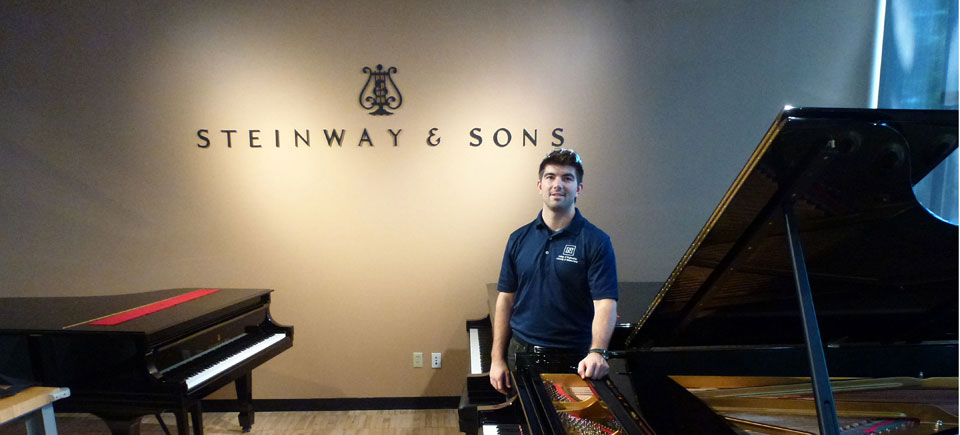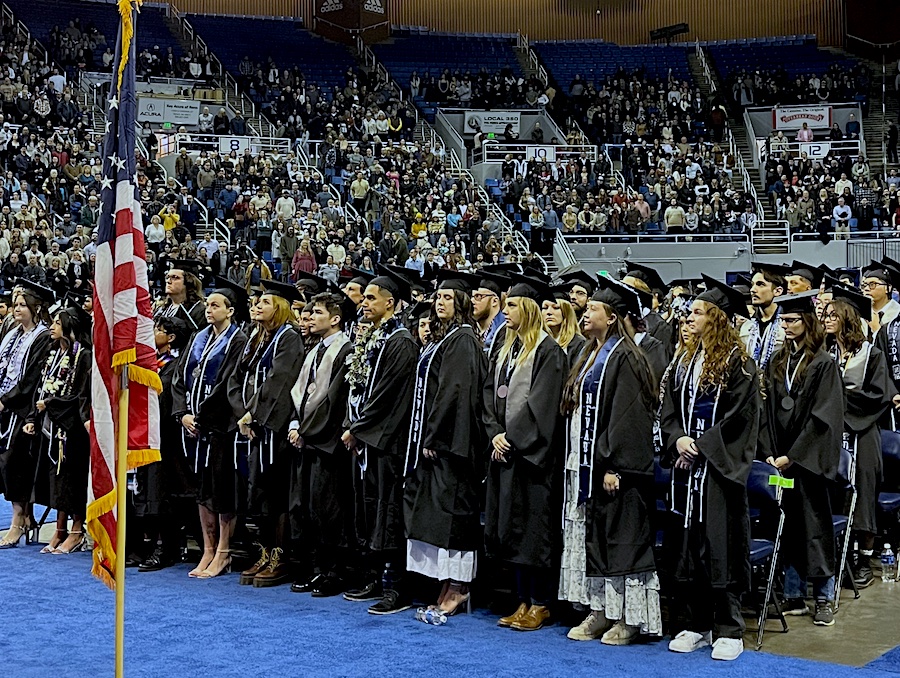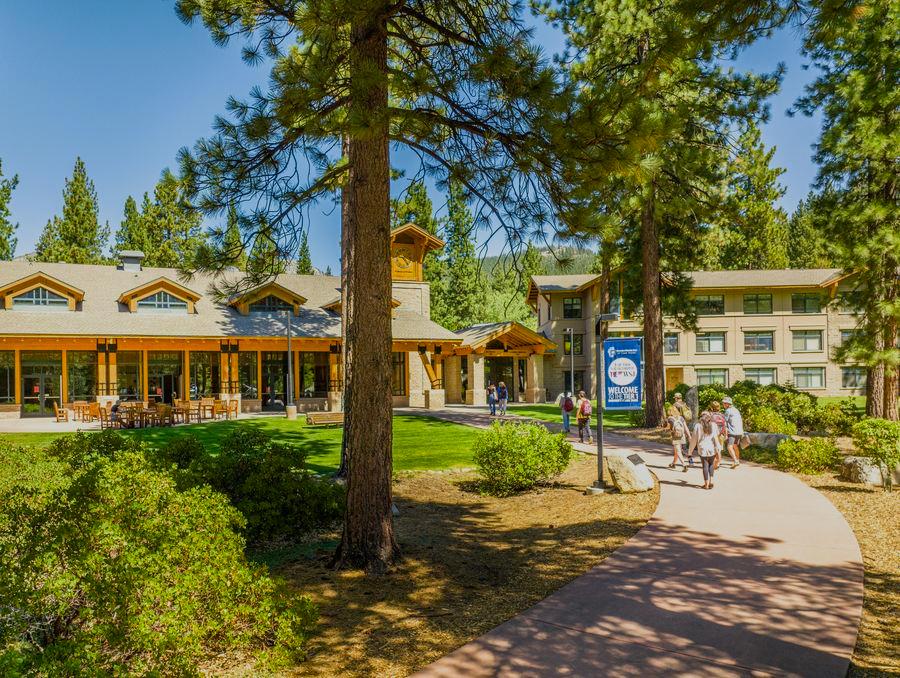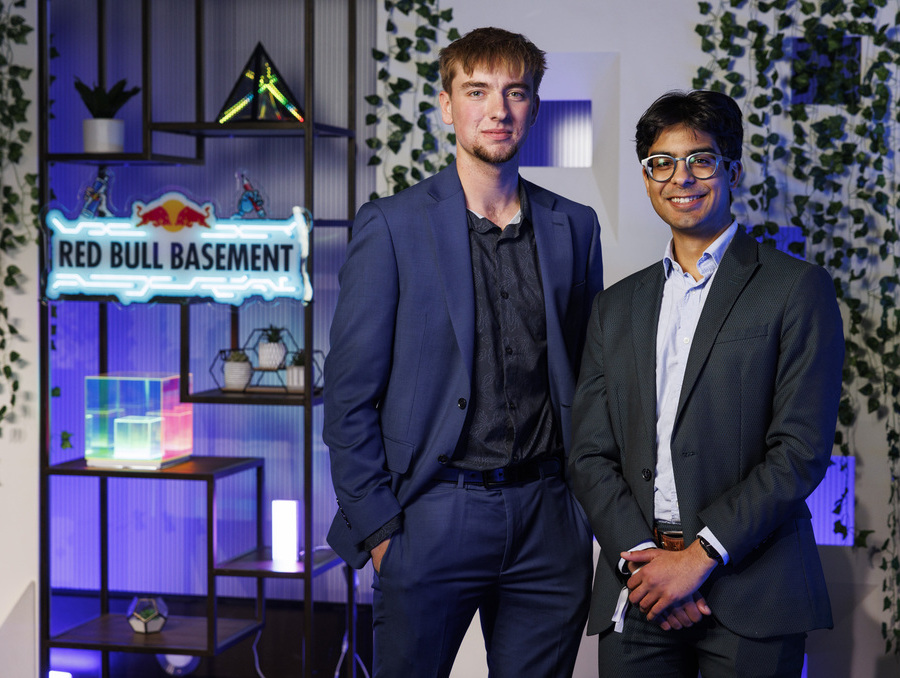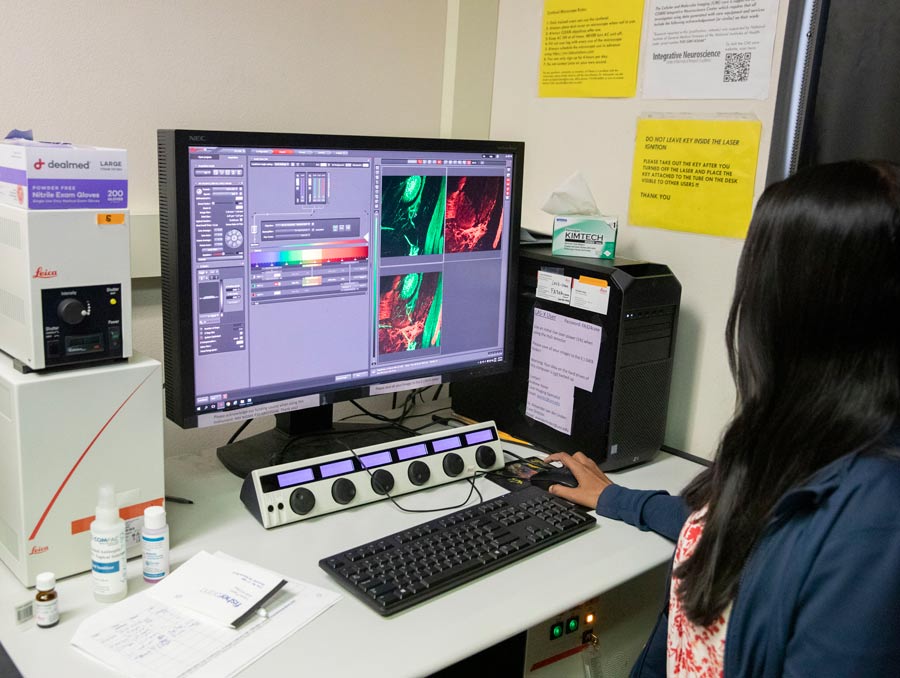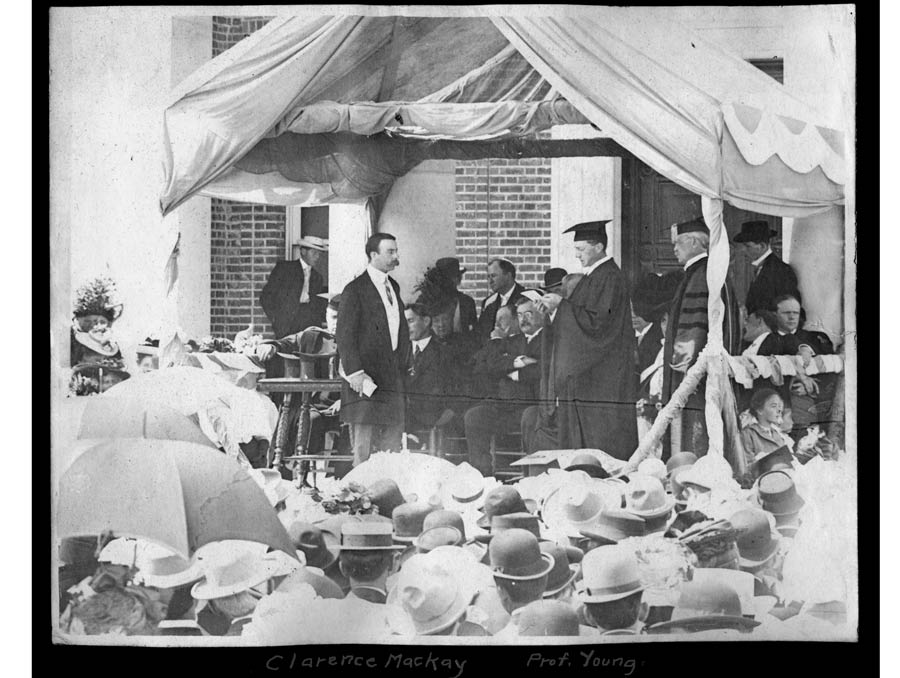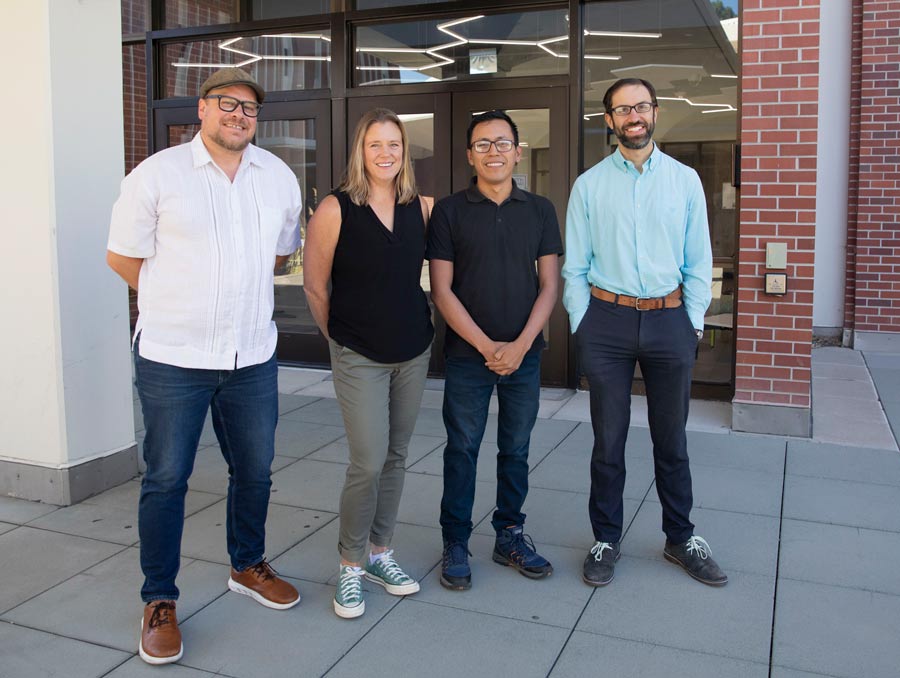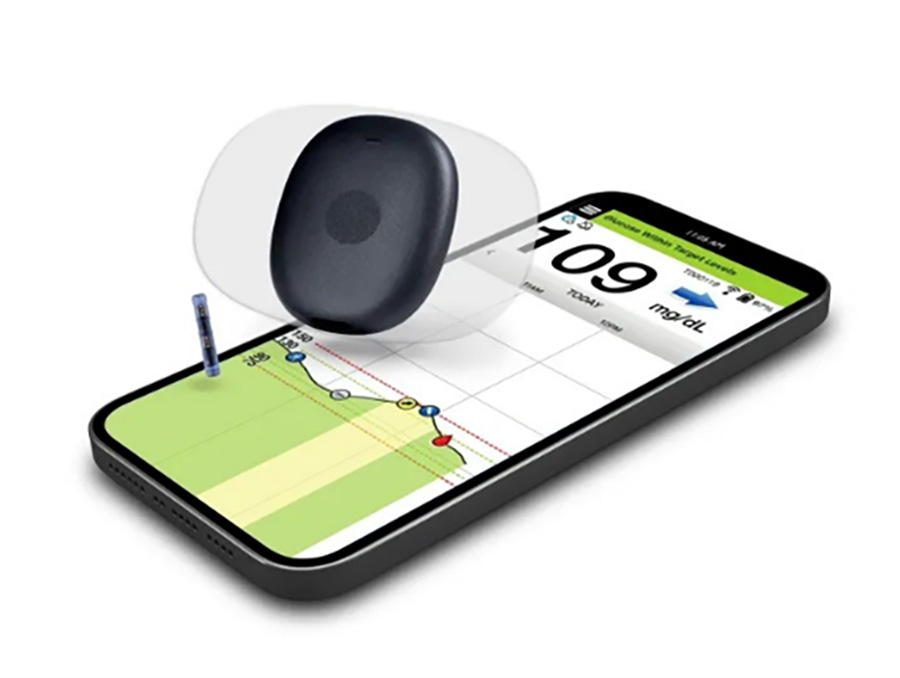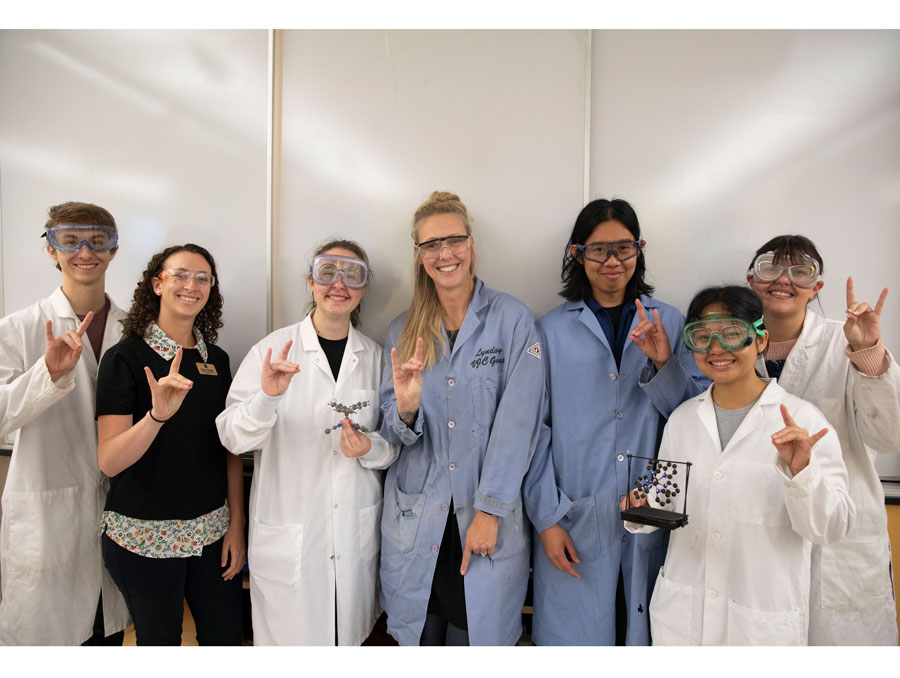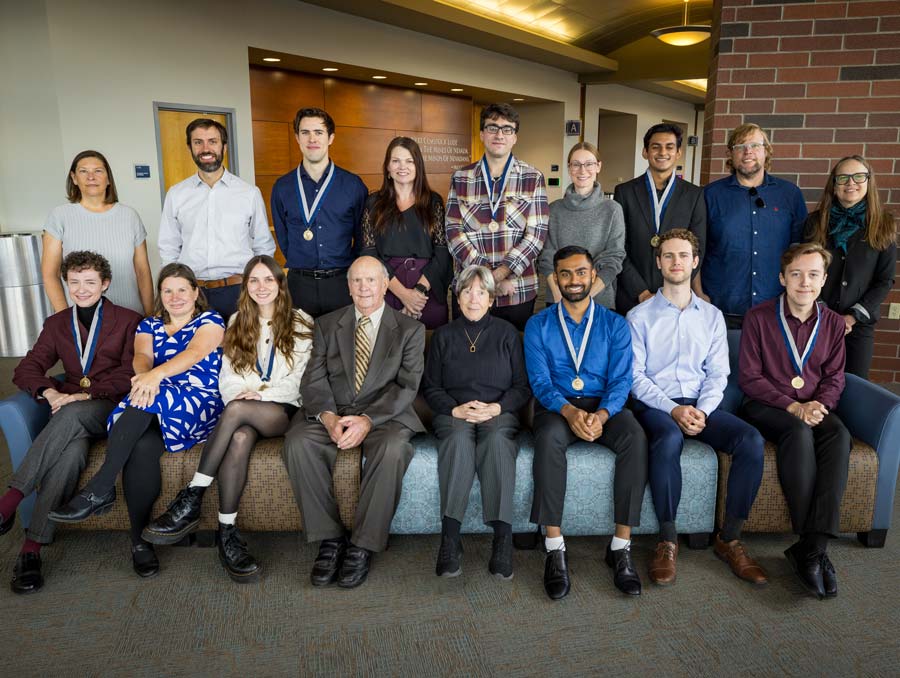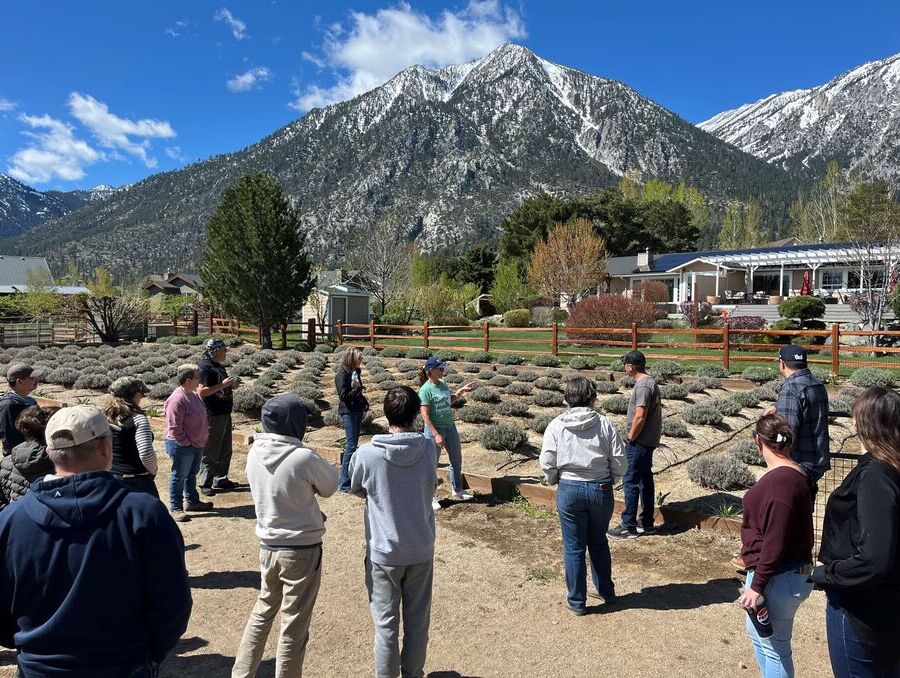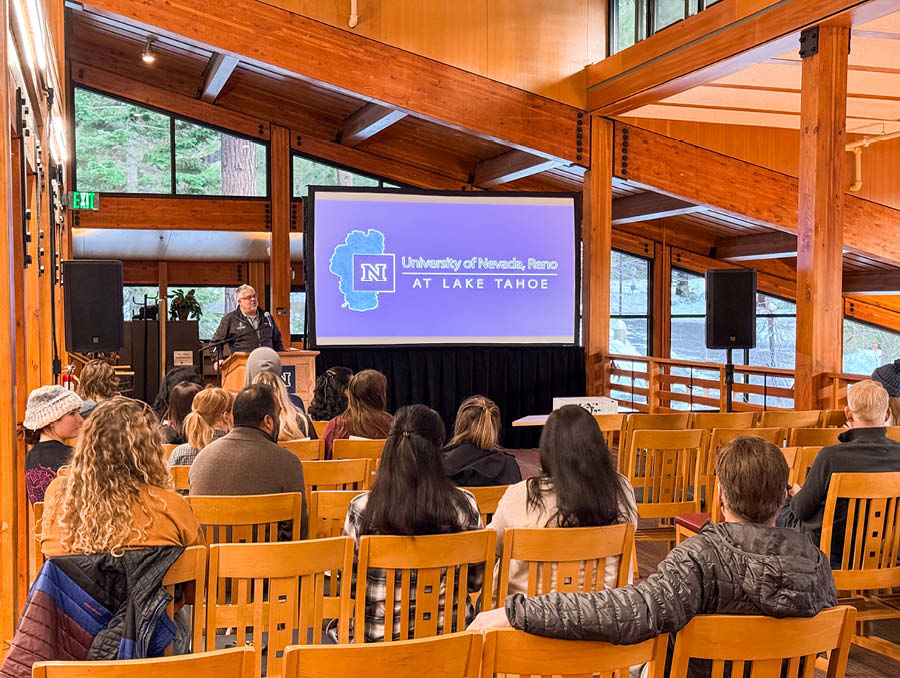Cameron Chappell's parents, Christian and Carol, met each other in the residence halls on the University of Nevada, Reno campus in the 1980s and later graduated and married. Years later, they brought their third-grade son on a tour of campus and he set his sights on attending his parents' alma mater ever since.
After graduating from Golden Sierra High School in Garden Valley, Calif., Chappell found his way back to the University. He is a mechanical engineering major, and math, Spanish and tentative music minor, with plans to graduate from the University in spring 2015, then find a job in one of his dream states.
"Montana, Idaho, Wyoming, and dare I say Alaska," Chappell said. "I would like to get a job there, preferably in engineering ... that would allow me to be away from the desk more often than not."
And this summer, he made sure to put his interests and talents to work 'outside the office' with an internship with piano manufacturer Steinway & Sons in Long Island City, N.Y., maintaining quality control in the Action Department, as he states, "for all of the parts that go into making the action of the piano."
"The action of the piano is what transfers the key stroke to the hammer which hits the string, important stuff in a piano," Chappell said. "It would seem that at 160-year-old piano company wouldn't need any engineering done, especially on an instrument as old as the piano, but there's quite a lot of work left to do on the natural materials like wood and felt."
Elyse Bozsik, K-12 outreach coordinator for the University's College of Engineering, supervises Chappell during the school year as a student employee of the Mobile Engineering Education Laboratory. The hands-on program offers K-12 students in Reno and Carson City the opportunity to learn about basic engineering tools, such as simple machines, and also focuses on more discipline-specific tops such as electric motors, water treatment and bridge lessons.
"When I met Cameron, I was blown away by the fact that he is such a dedicated engineering student, then I found out he is a talented pianist as well," Bozsik said. "To have a student who is precise, mathematically inclined and creatively disposed is a unique and exciting combination."
Chappell enjoys his outreach experience with students through the mobile lab and his in-class experience on campus, marrying his practical skills in engineering with his creativity with language, music and adventure, and has come to know many people from different departments. He said the University has been the perfect place for him.
"I love that I can go fly fishing, rock climbing, hiking or hunting all within a 30-minute drive," he said. "It's perfect for me."
James Winn, an acclaimed pianist, piano and composition professor at the University and a member of the Reno Chamber Orchestra for more than 20 years, has become a mentor and coach for Chappell.
"Cameron is an excellent and extremely musically expressive young pianist, one of the most multi-talented, hard-working, charismatic young men I've ever met," Winn said. "He's not a music major, but plays so well simply out of the love for it, all while maintaining a massive course load in another area altogether."
After performing with the music department during a promotional "All-Steinway" concert on campus in the spring, Chappell stood out to one of the upper-level administrators of Steinway in attendance and offered him the summer internship.
Winn and Bozsik were both excited when Chappell was asked to work at the Steinway factory throughout the summer, during which time, Steinway Musical Instruments, Inc., the parent company of Steinway & Sons, was purchased by Paulson & Co. and became a privately held company.
"I had many projects I worked on that were quite interesting," Chappell said. "All linear dimensions of the pianos are kept within 0.003" (three thousandths) and all angles are kept within 0.25 degrees. This is amazing considering we're dealing with rock maple; a lot can go wrong during the production and quality control is sort of a chore."
Chappell said that with another project, he tried to come up with a method of testing hammer felt.
"Every piano has a specific voice, this varies from piano to piano because of tons of other factors, but a big part of voicing has to do with the hammer felt," he said. "Soft felt means weak, tubby sound, whereas hard felt means bright, loud sound. If the felt is too soft, we put a lacquer solution on it we call 'juice;' if it's too hard, we stab it with needles to break down those fibers. The idea is if we can find out some physical characteristic of the hammer felt coincides with good voice and good sound, we can then come up with a way to manipulate the felt before it goes into the piano. So, I hunted for some property of felt that piano technicians like."
As a personal side project, Chappell built a bow at the Steinway factory out of scrap wood, even creating a photo gallery and build-along demonstration.
"Also interesting, I had to calculate the center of gravity for all models of pianos that Steinway offers," he said. "It was pretty nerve racking having to suspend a $120,000 instrument, but the company was researching different methods of shipping so we needed to know what forces to expect on certain parts of the container."
After completing his 10-week summer internship, Chappell returned with a new perspective and appreciation for both engineering and music, and said that the experience was sure to be a first step in a career direction.
Since 2009, the University of Nevada, Reno School of the Arts has been working toward becoming an All-Steinway School, a designation that includes more than 135 conservatories, universities, colleges and schools around the world. To be recognized as an All-Steinway School, 90 percent of its piano inventory must be Steinway instruments. More than 80 donors have supported the University's effort with nearly $160,000 in gifts since 2009. To date, there are 17 Steinways at the School of the Arts, five of which have been purchased or donated as part of the initiative.
To learn more about supporting the All-Steinway effort and the School of the Arts, contact Stuart Golder, director of development, 775-784-1222 or sgolder@unr.edu.
